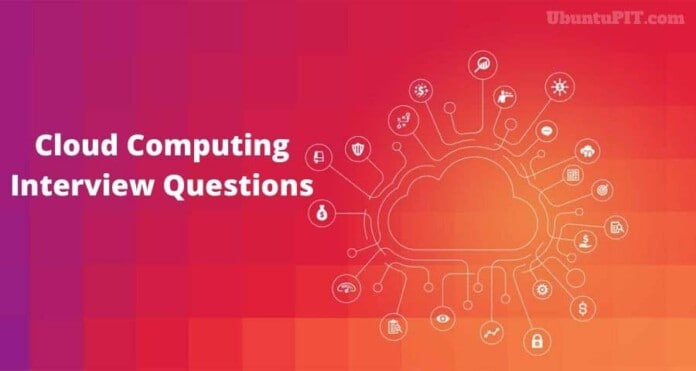Cloud computing has become a popular name in today’s world due to its ability to make individuals or businesses more efficient and compelling. It can reduce the cost of any process that requires computers and networks. You can free up the resources to use them for generating sustainable innovation and product development. As a result, many organizations have already adopted cloud, and experts are required in all industries. If you are looking for an opportunity to start your career in this field, these cloud computing interview questions will help you a lot.
After starting its journey in 1960, Amazon, Google, Dropbox, and AWS has fueled cloud computing to become an integral part of modern life. As a result, there is a high demand for qualified professionals in this hottest sector of technology. Before going through the cloud computing interview questions, you should make sure that you understand the cloud’s basic concepts.
Cloud computing has added the advantage of accessing resources at any time. Using the cloud, you can host files in the remote servers. Besides, the ability to process and manage them from anywhere saves time and makes the system cost-effective. If you are looking for the most asked cloud computing-related questions, you can check this article’s insights.
Cloud Computing Interview Questions
If you are preparing yourself to attend any cloud computing interview, try to ensure that you understand the explanations to the mentioned questions. We have tried to cover all the important interview questions here in this article.
Cloud computing questions can be of many kinds. You can expect fundamental questions and advanced level questions as well. Most of the questions asked from cloud infrastructure, security, services, and process. Besides, you will need to know the advantages or benefits of incorporating cloud computing in any business. Our collected cloud computing interview questions will save your time and prepare you for the upcoming challenges.
Q-1. What does the Cloud mean?
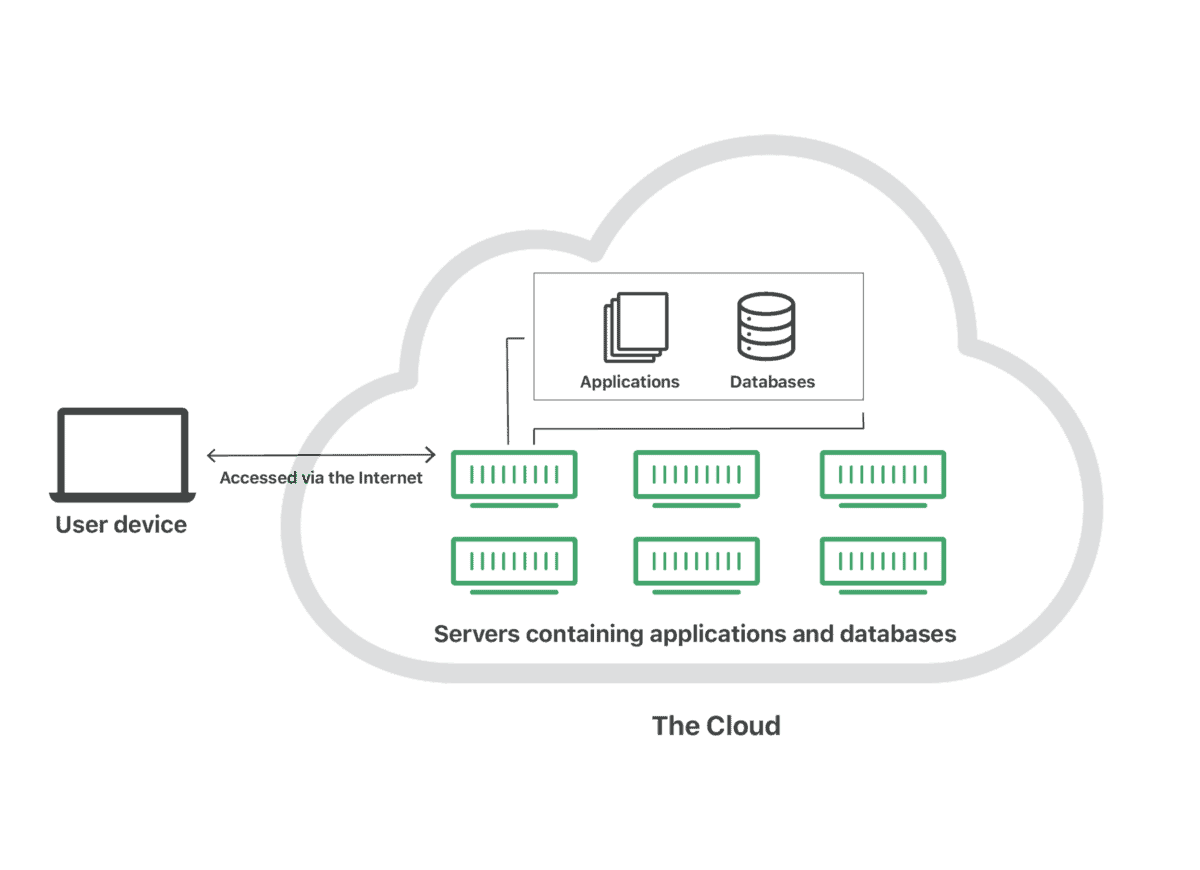
A sophisticated network, hardware devices, enabling services, interfaces, and storage Cloud help deliver computing as a service. We can categorize the cloud users into three sections, and they are end-user, business management users, and cloud service providers.
End-users enjoy the advantages of cloud by using its features while business management takes responsibility for the end-users’ data and services. And the cloud service provider ensures the quality of the service through IT maintenance and introducing innovative solutions. Cloud acts as a bridge between these three users so that the IT assets remain accessible and protected as well.
Q-2. What can be referred to as Cloud Computing?
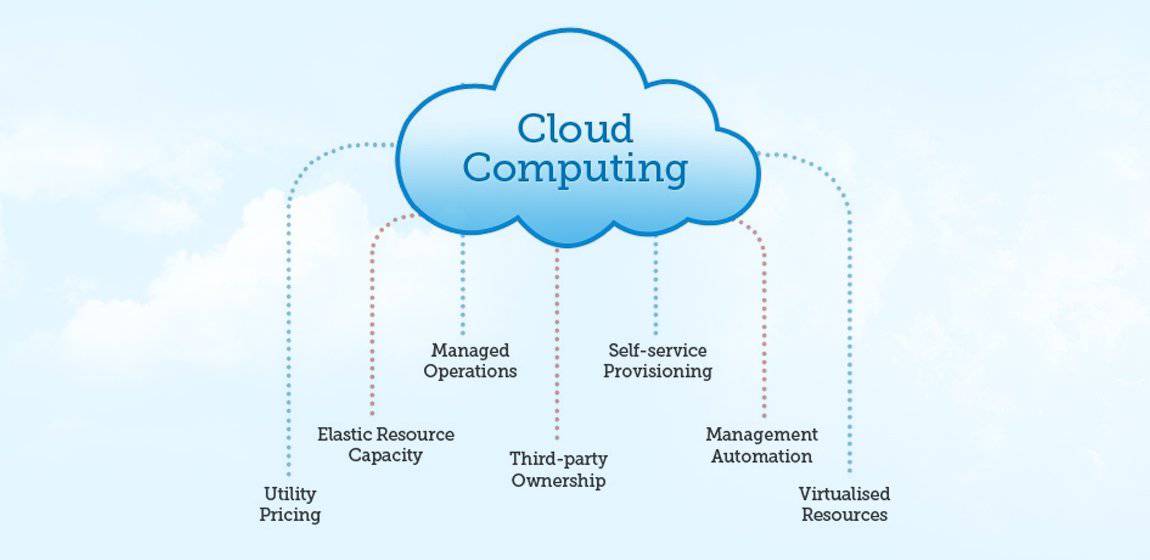
Cloud computing is a sophisticated technology that uses the internet to provide better service at a lower cost. In other words, it took the internet to the next level as it has enabled users to access data whenever and wherever required. Businesses are greatly benefitted by cloud architecture as they can serve their customers, partners, and providers better.
The significant contributors to cloud computing include business leaders, vendors, and partners. Vendors make the applications and technologies available to the users. Partners work to increase the demand and offer support to the customers. The business leaders evaluate the execution of the services provided by the partners. Cloud computing has enabled companies to manipulate confidential data as a pool but not as an independent resource.
Q-3. Mention the primary attributes of cloud computing.
There are a lot of features that cloud computing has to offer. But if we want to categorize all these features under some major categories, then we will get four significant characteristics, and they are:
- Standard and easy to use interfaces
- On-demand self-service and Automation in process
- Elasticity, Scalability, and Resources Pooling
- Availability, Economical, and Pay as you go.
Q-4. Share your understanding of Cloud Service?
Cloud service is used to build such applications that are made available to the public by a cloud computing provider. When you want to use a traditional application or software, you need to use specific platforms alongside the device that has the minimum requirement to run the app. But the main advantage of cloud applications is they are independent of platform or operating system. Besides, people can use it according to demand.
Applications can be intended for both public and private use also, as there is no need to install these applications on your computer. So the cost of running or maintenance is minimized eventually. And also, the users can be of any kind depending on your choice.
Q-5. What are the specialties Cloud Service can display?
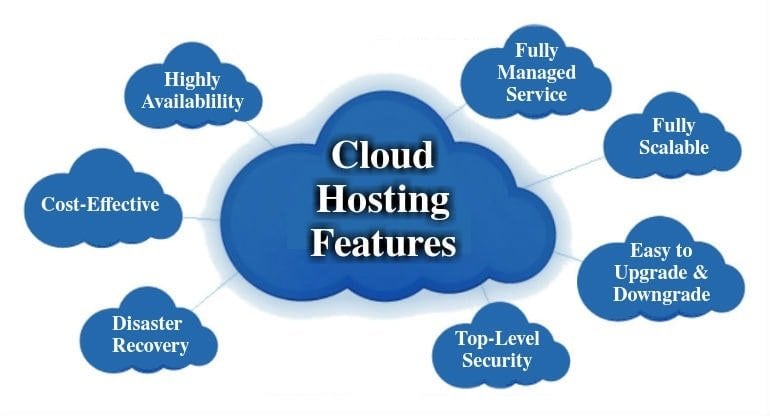 This is one of the most common cloud computing interview questions. Cloud services have a high impact on our life. It has centralized the activities of the web application. So you do not need to use several devices for managing the software. Besides, new features are added to these applications centrally, eliminating the necessity to download the latest upgrades continually.
This is one of the most common cloud computing interview questions. Cloud services have a high impact on our life. It has centralized the activities of the web application. So you do not need to use several devices for managing the software. Besides, new features are added to these applications centrally, eliminating the necessity to download the latest upgrades continually.
Another feature we can mention is that cloud service organizations can help access and manage commercial software from vendors or distributors. Besides, complex rules can be set up to handle several clients at a time.
Q-6. Mention the influences of Cloud Services.
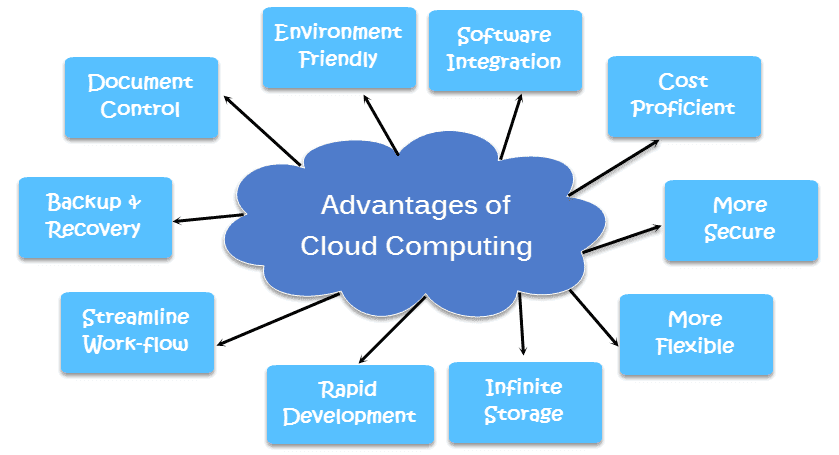
Cloud services have already been adopted by most of the businesses. It provides a competitive advantage, adds value to your product or service, and also increase efficiency. It also reduces the manufacturing cost and enables you to deliver better products at a lower cost. The amount of advantage that the cloud can provide is uncountable. Some of the major advantages are Cost Savings, Security, Versatility, Mobility, Augmented Collaboration, Condition Control, Disaster Recovery, Loss Prevention, Programmed Software Updates, Contentious Edge, and Sustainability.
Q-7. How many are Cloud Deployment Models available out there?
We can classify cloud infrastructure into four deployment models. They are:
Public Cloud: Uses public network. Available for anyone who wants to use or purchase.
Private Cloud: Uses a private network and is managed by private resources. This model can satisfy all the needs that a small business or office can demand.
Community Cloud: Resources are available to a community and shared between multiple concerns. It is, although hosted by the internal server but often managed by a third-party service provider.
Hybrid Cloud: A combination of the private and public models. It can even switch between the two models depending on the demand of the condition.
Q-8. Why should an organization manage the workload?
The cloud’s workload refers to the various components that are running like virtual machines, databases, or a simple code to be executed. It can be a data-driven workload or transaction processing workload. The workload of an organization does not depend on the outside elements.
If an organization decides to start using a cloud environment, they should evaluate their capability of managing workload in the first place. It is necessary to know how the applications are running and how the functions are performing when executed. It is also essential to take full control over the network and identify every department’s charges that are sharing the same cloud architecture.
Q-9. What are the most recognized Cloud Platforms?
Cloud computing can be portrayed as the second home of any organization. Besides, it can produce the computing power required for new technologies such as AI, IoT, Machine Learning, Data Mining, etc. Many companies are famous for offering cloud platforms for their users, such as Microsoft Azure, Amazon Web Services, IBM Bluemix, Google Cloud Platform, and Alibaba. Azure and Google have the most number of followers due to the features, capacity, tools, and developer API they are rendering.
Q-10. Which are the Services Window Azure Operating System is providing currently?
Window Azure Operating System offers a wide range of services. You can choose any service to develop further or incorporate it in the existing system. The significant services made available by Windows Azure include Compute, Analytics, Storage, Web and Networking, Media Delivery Networks, Migration and Management, Containers and Databases, Development and Security, Artificial Intelligence and Machine Learning, and Mobile and Internet of Things.
Q-11. What does Windows Azure Operating System have to offer?
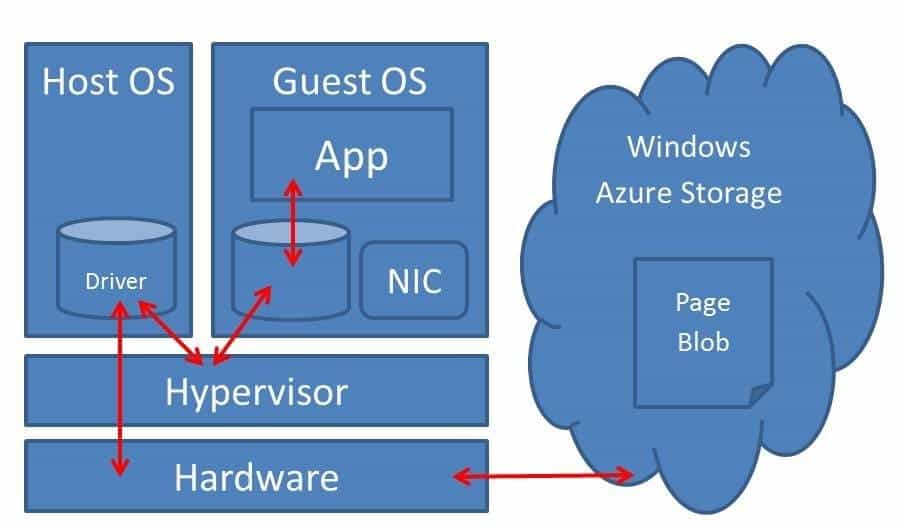
Windows Azure platform works great for running cloud applications. It can provide a suitable environment so that the developers do not need to face any hassle to test their applications. It comprises Web servers, computational services, primary storage, queues, management services, and load balancers. Ability to analyze data and gain computing results, virtual servers, accessing networks are the benefits you can achieve through Azure.
If you want an application to be compatible with the Azure platform, you have to use the Azure operating system. It provides unique features, and you can develop any application. Besides, it can be used for unit testing of software and can help test your app before deploying in the cloud.
Q-12. What are the differences between Private and Hybrid cloud?
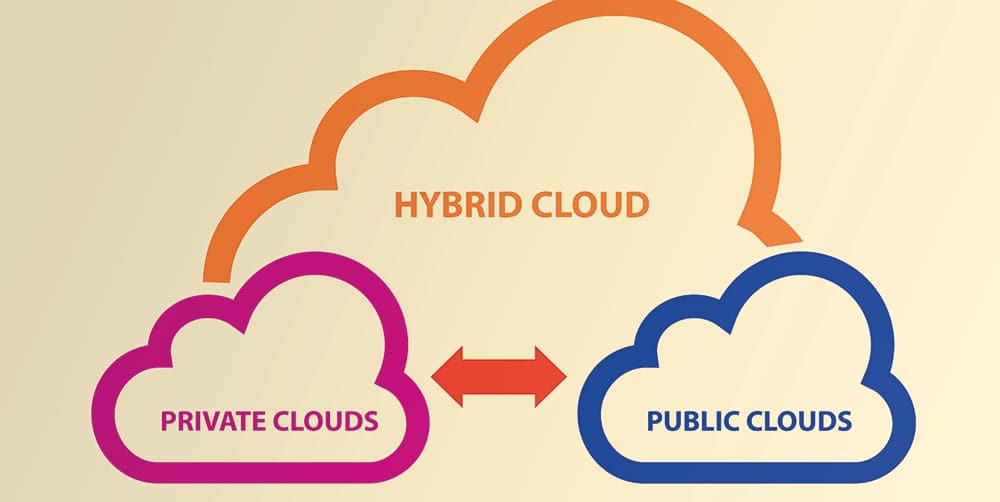
If we consider the cloud for organizational use, then private and hybrid are the most used deployment model. Some significant differences between them are mentioned below:
- Only an organization’s data is stored in a private cloud, while a hybrid cloud consists of both public and private resources that are available in a shared environment.
- Services are accessible only by the correspondent organization in a private cloud. But public sources are available to anyone while private sources are available for the authorized users in a hybrid cloud.
- The data center is located inside the institution’s network while a hybrid cloud organization maintains the private data center, and CSP controls the public one.
Q-13. What are the major concerns growing around Cloud Computing?
Cloud computing is facing several problems since the beginning of its journey. Among them, some of the issues are yet to be solved by cloud developers. To become trustworthy, legal, reliable, and be able to keep user’s data confidential are the significant challenges the cloud environment is facing currently.
We have included this topic in the list of cloud computing interview questions because the major concern prevailing around the cloud is security. Most of the cloud platform preserves user data but can not guarantee 100% protection from the scammers. That means your data is at risk of being exposed. Encryption can be treated as a solution, although it has introduced new problems as well.
Q-14. How can a business become trustworthy after incorporating Cloud Architecture?
Organizations can include Service Level Agreement in the website or application. There is no way for the audience to know whether any specific site can have inside attached or be attacked by malware or not. SLA can help people be aware of what the service providers can do and what they are willing to do.
Although the cost of building a private infrastructure is expensive, it can isolate data from the public, which will enhance security. Also, a virtual private cloud can be introduced to eliminate the options of any physical access. If we consider the public cloud, client partitioning can be an option but not recommended.
Q-15. What are the basic components of the server computer in the Cloud Computing?
Although server computers consist of pretty high-grade components, any less expensive or basic computers can also serve the purpose of a server computer. This can be referred to as another advantage of cloud computing. Usually, the basic components of a server computer include Motherboard, Memory, Processor, Network connection, Hard drives, Video, Power supply, Graphics Unit, Ports, etc.
Q-16. How Is Security ensured in Cloud Computing?
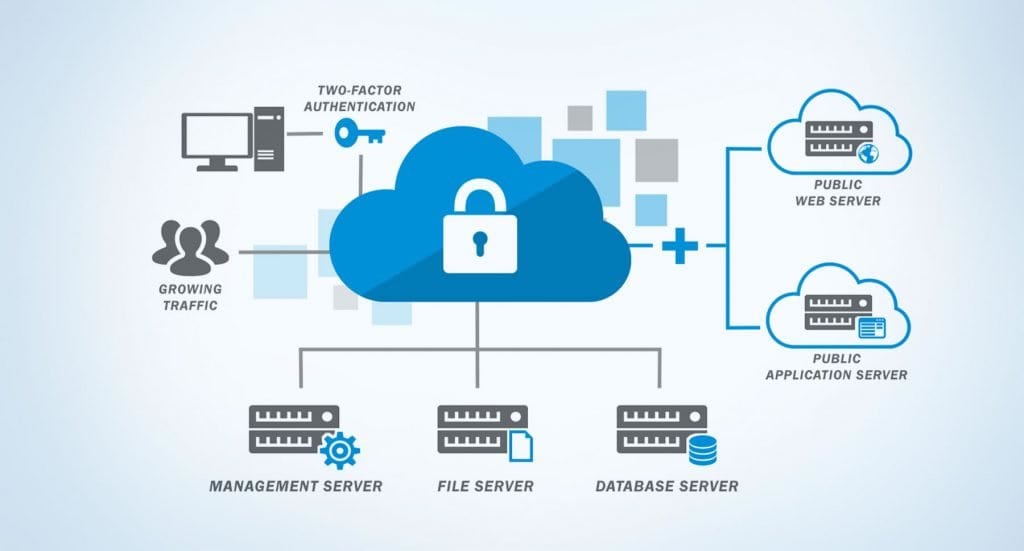
This is a very important topic and can be enlisted under upper-level cloud computing interview questions. Cloud computing security or simple cloud security refers to the policies, rules & regulations, technology, access, and applications that are utilized to protect data, servers, virtualized IPs, and infrastructures associated with cloud computing. Cloud security is a subdomain of computer and network security alongside information security, as well.
Q-17. Mention names of the top Cloud Applications of today?
After the arrival of cloud computing, many companies have switched to the cloud platform. Some companies are immensely successful in this field. They have introduced cloud computing into the existing systems for increasing efficiency and generating better output. Cloud applications have revolutionized our lifestyle, and some of them are G suite, Microsoft Azure Platform, Adobe Suite, Kamatera, phoenixNAP, Amazon Web Services, VMware, IBM Cloud, SAP, Verizon Cloud, Navisite, Dropbox, Rackspace, Red Hat, Salesforce, Oracle Cloud.
Q-18. Comment on the impact of cloud computing on our everyday life.
Social Impact: From a remote corner to the global stage, an event can become viral within a few minutes. Cloud computing has reshaped the way of how people interact with each other.
Educational Impact: Students can access essential study materials, data, information, or sources at any time. Teachers can share their lectures. An application like Google Classroom helps to manage a classroom in the cloud.
Development: Countries that have already completed building the architecture for the cloud are now enjoying the blessings of cloud seamlessly in many sectors like banking, agriculture, health, and medicine.
Q-19. What is the cost of setting up a Cloud Infrastructure?
Cloud computing can render financial advantage to any business. Besides, you will get a more efficient solution for your system. It will eliminate the necessity to pay a maintenance charge for the software. But one should understand the cost that will be required to implement cloud computing.
Setting up a cloud network is expensive. While a premise-based server will cost $10,000-$15,000, a cloud server might take $70,000 – $100,000 or even more. Firewalls, switches, and hardware necessary for a cloud environment are there also. Organizations can not risk equipment failure, which may disrupt the workflow, so only high-quality equipment is used.
Q-20. Explain Cloud Computing by defining associated layers.
The cloud environment is sophisticated, and multiple layers have to function together to have a working cloud. Besides, these segments make the cloud more compelling, organized, and efficient. The layers are described below:
Cloud Controller: CLC is used to control virtualized resources like servers, network, and storage using the configurable API. It is the topmost level in the hierarchy of cloud computing layers.
Walrus: Manages the storage distribution according to the user’s demand and makes the cloud scalable.
Cluster Controller: Controls VMs executions and maintains communication between VMs and external resources or users.
Storage Controller: Handles the storage block rendered by Virtual Machines.
Node Controller: Performs the role of a hypervisor, which controls a wide range of VMs activities like execution, management, and termination of the instances. It is the lowest level of the hierarchy.
Q-21. Mention the differences between Cloud and Mobile Computing.
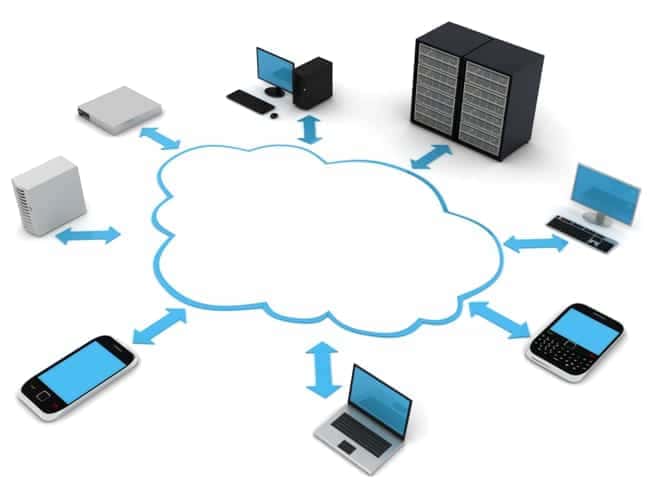
This is one of the most important cloud computing interview questions that focus on mobile and cloud computing. Cloud Computing refers to storing, managing, and accessing data through virtualized cloud servers. While Mobile Computing refers to the transmission of files like data, images, videos from one device to another using a wireless network.
Mobile Computing is a consumer-facing technology, while Cloud Computing is designed to provide Enterprise Level Solution. Although both Mobile and Cloud Computing uses a wireless network for transmitting data, cloud computing focuses on improving business, and mobile computing focuses on user experience.
Q-22. What are the things that you must know before transforming into Cloud Computing?
You should be aware of a wide range of concepts before you can adopt cloud computing for your company. We can describe the parameters as follows:
- You have to know the data type associated with computing, the accuracy of data, cost, and whether the dataset is complete or not.
- Rules, Regulations, and Policy should be standardized and maintained well.
- Even before incorporating cloud infrastructure, you should arrange the backup and achieve the capability of restoring your data in case of any failure occurs.
- Check the authenticity of data sources and monitors the validity of the collected data.
- Find the opportunities of your business and know the uptime that cloud computing can provide as an advantage.
- Finally, estimate the cost that you will have to pay for setting and managing Cloud Architecture.
Q-23. Explain the performance of cloud computing in developing the IT sector.
If you are looking for a job in the IT sector, you can expect this kind of basic cloud computing interview question. The industry of cloud computing is overgrowing. All the leaders in the IT sector and other companies have already shifted to the cloud environment. Also, the number of jobs is increasing with time.
Cloud computing in IT indicates the delivery of hardware, computer applications, and infrastructures over the internet. It has reduced the cost significantly required in traditional IT where demand and capacity are forecasted first, and the time and money are invested later. It can free up the resources for product development and enabled the developers to contribute from anywhere anytime.
Q-24. Why is Cloud Computing important for business?
Cloud computing has resolved many difficulties in modern businesses and individuals that we encounter in regular life. It may range from acquiring and maintaining suitable hardware and software to streamline the resources most efficiently. The three most essential roles cloud computing is playing are:
- Efficiency: Facilitates the access of cloud applications, offers scalable resources, implement best security standards and procedures, helps to take backups, and restore data and applications.
- Flexibility: Enables businesses to select from a wide range of prebuilt tools and features, offers public, private, and hybrid network solutions, SaaS, PaaS, and IaaS service options to determine the level of control.
- Strategic Edge: Automatic software updates and adds value to the products.
Q-25. Which can be considered as the basic cloud in Cloud Computing?
Cloud computing offers a wide range of cloud, and it can be of any kind. The three basic cloud include:
- Personal Cloud
- Private Cloud
- Professional Cloud.
Q-26. Explain the role of Performance Cloud in Cloud Computing.
Some of the cloud applications need the maximum number of data to be transferred at a particular time. These applications are online video and picture editing software, statistical report generating software, and so on.
Besides, it is essential for online gamers. Cloud computing has revolutionized the way of how we play computer games today. It has enabled us to play together even when we are not at the same place at the same time. As an emerging type of cloud, it can transfer the highest amount of data instantly. It also helps researchers to conduct a high-performance graphical representation of research.
Q-27. Why is Professional Cloud used?
Professional Cloud is one of the most common cloud we come across regularly. It is mainly designed for business organizations. It is important for Emails, CRM solutions, and multisite web applications.
Q-28. Can Cloud Computing save money? If yes, please explain.
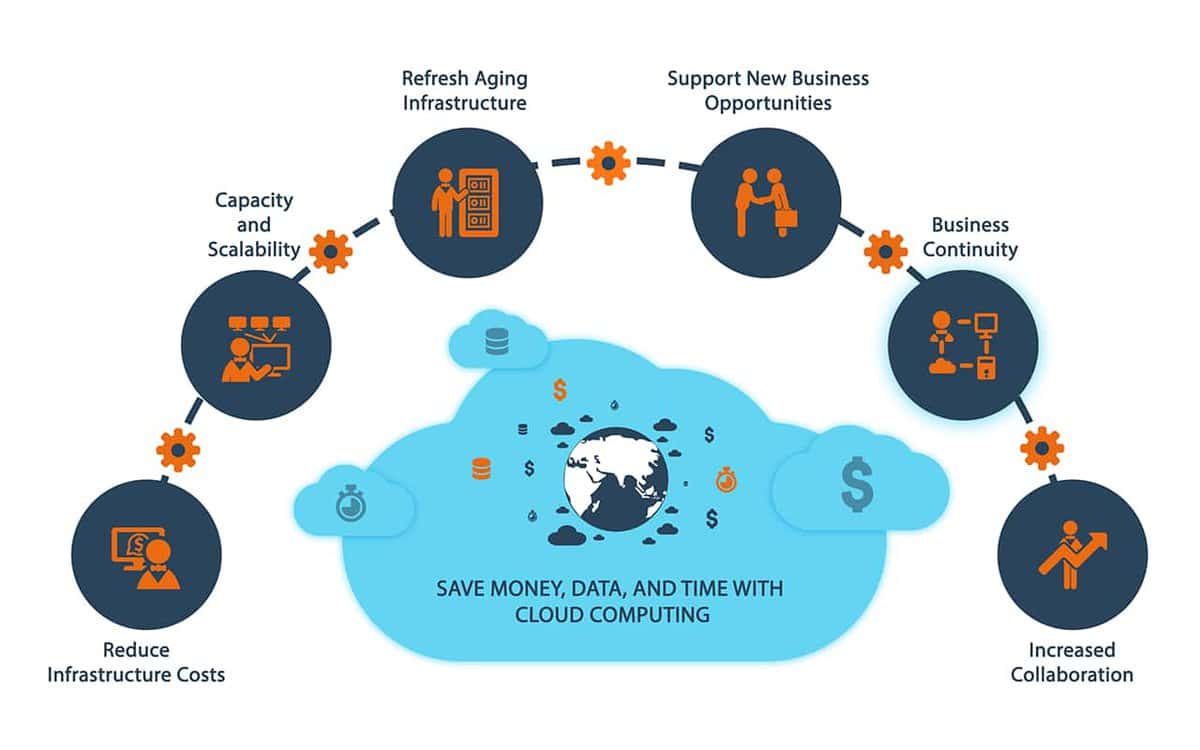
Cloud computing can save businesses to waste a lot of money by offering unique features. It saves not only money but also time. Yet, it can deliver a competitive advantage to the businesses. And you can increase the utility of your products or services.
It replaces the hardware addition in the server room when required. Instead of acquiring expensive hardware and software, businesses can order or buy required services through cloud payment for temporary use. Besides, the availability of data needed on time saves money from a traveling distance, and on-demand services have increased productivity as well.
Q-29. Are telecom operators adopting cloud?
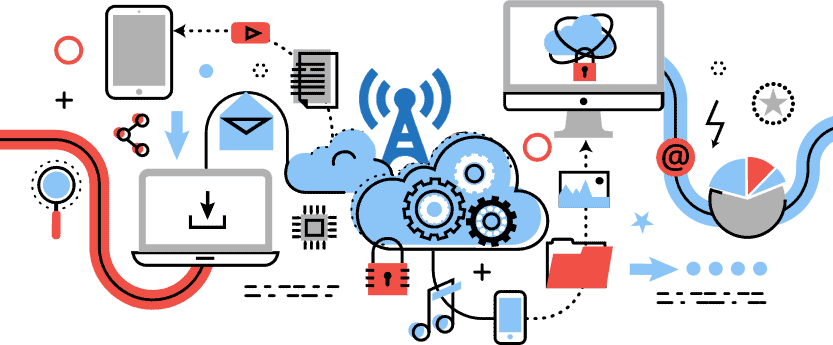
Cloud computing has improved almost all the industry, and the telecom industry is no different. However, it was questionable until some telecoms declared their involvement in adopting cloud computing for storing data. The main reasons behind adopting cloud are Scalability, Revenue, Easy Adaptation.
Q-30. How can Cloud Computing provide the desired service even in extreme situations?
One of the principal benefits provided by Cloud Computing is On-demand functionality. It refers to the solution provided by the cloud vendors whenever the resources are required. We can see Cloud Computing performing the role of a metaphor on the internet. It offers virtualized IT resources shared by other individuals based on an agreement called a subscription.
Ready or configurable assets are stored in a pool, and you can use them whenever you need them. You can customize any features according to your choice by taking it from a shared pool consisting of networks, virtual servers, storage space, applications, and enabling services.
Q-31. How can you differentiate Scalability and Elasticity?
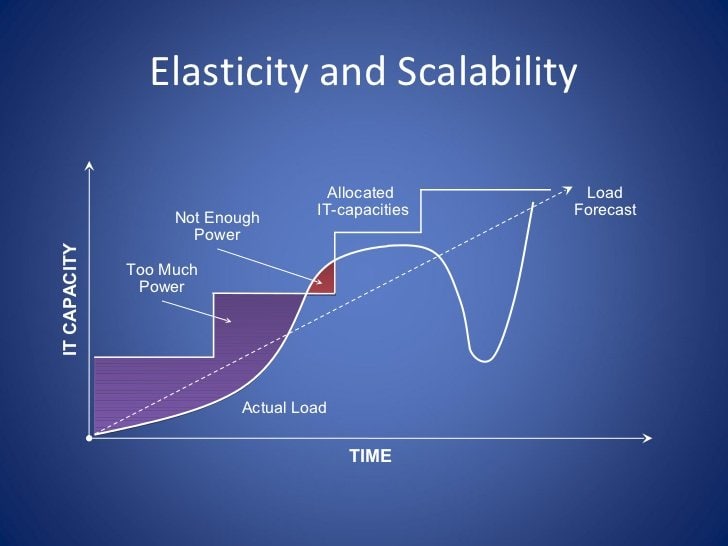
Scalability and Elasticity are foremost the prominent features offered by cloud computing in today’s world. These are the two fundamentals characteristics of cloud computing. There are cloud computing interview questions that candidates often miss, and this question is one of them.
Scalability enables cloud computing to increase the proportional amount of resources when demand increases automatically. It helps to handle the enormous traffic, and the number of shared resources can be increased based on demand. On the other hand, Elasticity gives you the power to commission and decommission from a massive set of resources dynamically. It is measured by how fast the data is coming and the number of resources that are used.
Q-32. Explain Cloud Computing by defining its different layers.
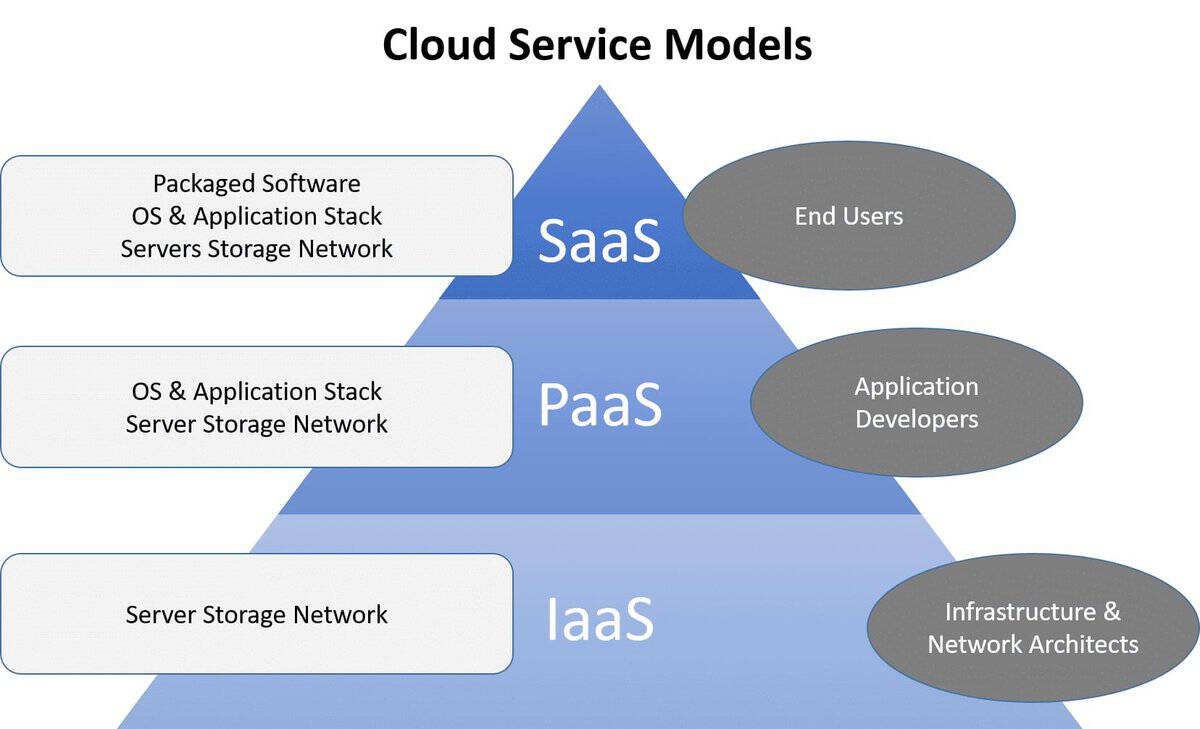
Three layers in the hierarchy need to work together to get a cloud service. They are:
- Infrastructure as a Service (IaaS): Provides the hardware resources like memory, processing speed, etc.
- Platform as a Service (PaaS): Renders a suitable platform for developing cloud apps used by the developers.
- Software as a Service (SaaS): Enables people to use cloud applications without installing or downloading them on the computer. These apps remain on the computer, and any further development can be done in the cloud only.
Q-33. What are the resources provided by Infrastructure as a Service?
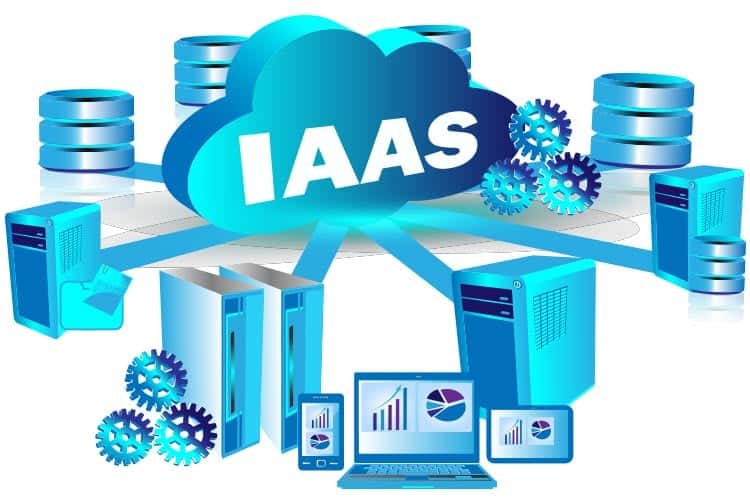
IaaS plays an important role in providing virtual and physical resources provided by the cloud. Cloud Computing starts from this layer. Infrastructure deals with the difficulties in managing and deploying cloud services. The list of infrastructure includes servers, processors, storage, and other hardware systems.
Q-34. Describe the role of Platform as a Service?
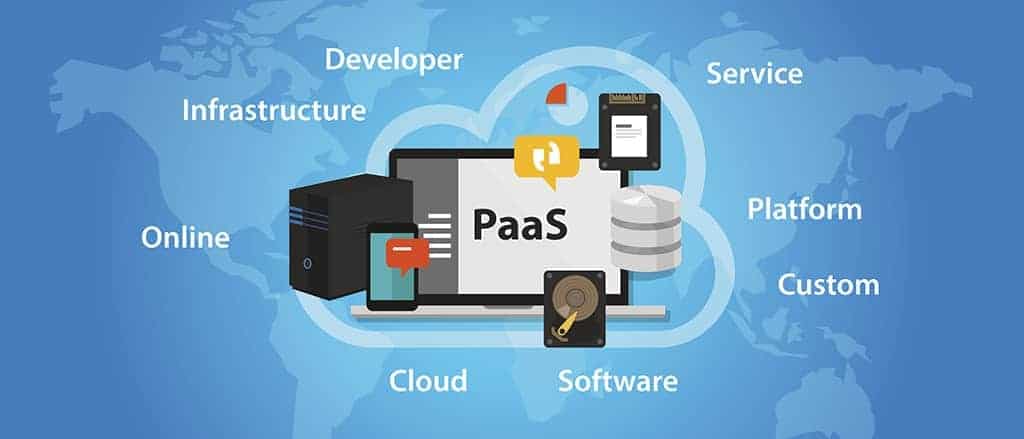
It is the most important cloud computing layer and acts as a bridge between the top and below layers. PaaS is built on an infrastructure model and offers resources like storage, computers, and network. This layer is used to organize and use the features built by IaaS. Besides, it can accumulate the infrastructure layer to serve as a single server.
Q-35. What does SaaS offer?
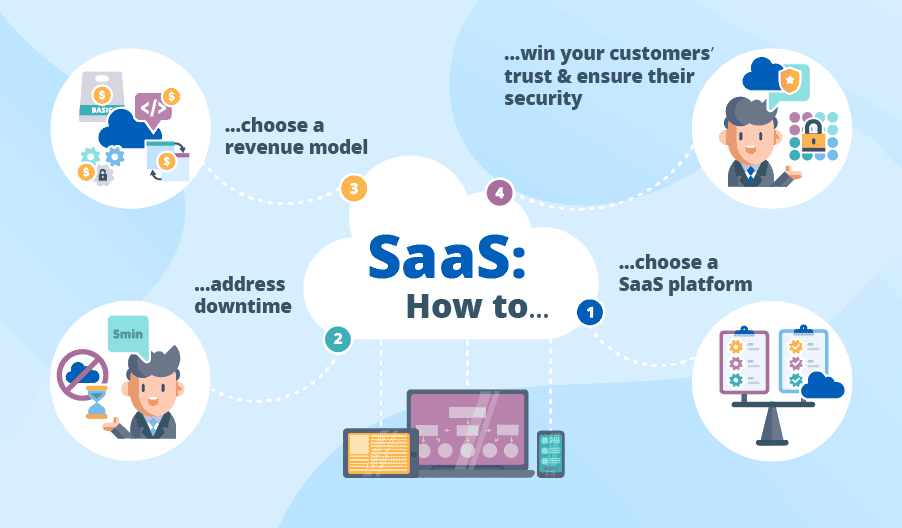
SaaS is the topmost layer of cloud computing and responsible for making cloud computing so popular among people. It is used to provide cloud services to users. Canva is an excellent example of how SaaS helps improve the cloud and makes it more efficient.
In Canva, you can create any design and save on their server. Many templates are shareable resources, and you can customize them with the help of IaaS and PaaS. There is software that can be used to make many applications and share them with other people simultaneously.
Q-36. Explain the data centers used for Cloud Computing?
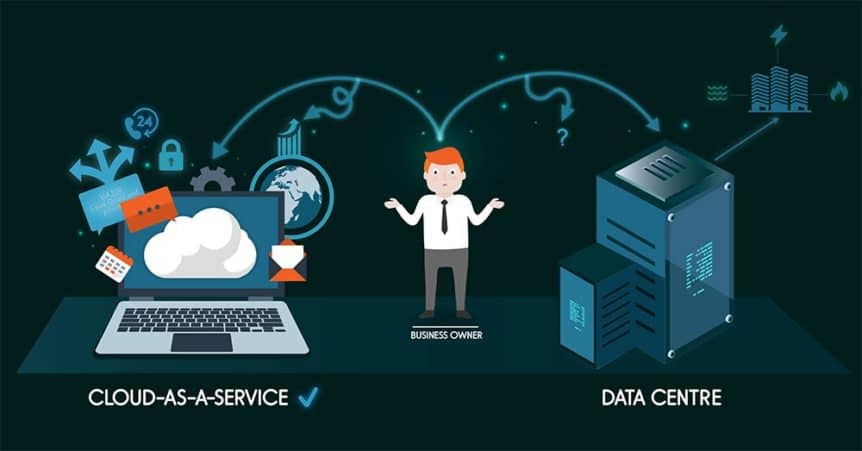
Data centers in the cloud are hosted somewhere on the internet. The main difference between physical and cloud data centers is while hardware centers are usually located on the company’s premises, cloud servers do not occupy any physical space. The data centers deployed for Cloud Computing are:
Containerized Data Centers: This kind of data centers need planning, cooling, the power to get access, and networking. Allow users to customize, mainframe, and other essential resources.
Low-Density Data Centers: When it comes to rendering highly optimized service, Low-Density Data Centers perform best. Besides getting enhanced density, the space constraint is eliminated. But these data centers are affected by the excessive heat that is generated for processing higher density.
Q-37. How can the APIs provide fuel to Cloud Computing Services?

Application Programming Interface has played the most important role behind making cloud computing so accessible. During your preparation, you must focus on API related cloud computing interview questions to get the desired job.
API enables the developer to build any application with ease. There is no need to write a fully flexed program if there is an API available. It allows users to integrate cloud computing with other services. You can even work to intertwine two applications using constructed instructions.
Q-38. Explain the distinct forms of SaaS.
Software as a service gives you the opportunity to build your own software or application using a suitable platform and the tools provided. There are two modes of SaaS, and they are:
Simple multi-tenancy: Resources are available to the users, although they may vary from one user to another. In this mode, the user has to put more effort and time to get the desired outcome. But you will need to add more infrastructures with time when the demand arises.
Fine-grain multi-tenancy: Although functionalities remain the same, resources are shared with every user in this mode. This mode is better as although resources are shared, your data and applications rest protected.
Q-39. What are the main security aspects delivered in Cloud Computing?

Security can be considered as a major problem in the cloud. If any organization wants to adopt cloud technology, it must ensure the safety of the environment by rendering the three fundamental aspects while developing the insights of the network, which are:
Identity Management: Ensures that the service or hardware resources are used only by authorized people only.
Access Control: Allows authorized users to control the access of the permission for others who are entering into the network.
Authorization and Authentication: Restricts unauthorized users to access and change any data from the services.
Q-40. Mention the differences between the most used data centers.
We can differentiate the data centers in the following areas:
- The cost of setting up a traditional data centers is high. As the heating issue is involved with it, the user has to use all the top quality hardware devices to prevent failure and interruption. Besides, you can build a cloud environment with average computers, which are relatively cheap.
- The maintenance cost of physical data centers is also expensive. Besides, you need to upgrade the hardware when demand increases. On the other hand, the cloud requires very little or no maintenance, and there is no need for an expert hand to manage.
Q-41. What are the expense determinants required in Cloud Computing?
Cloud data centers are efficient and much more cost-effective solutions for any business. But some cost factors must be taken care of to get a productive cloud.
Some skilled people are required to maintain and manage the workload besides keeping track of the traffic. It may cost around 6% of the total cost. You will need to invest about 20% of the total cost in distributing power and maintaining the infrastructures. The highest price is required for computing, which is essential for protecting confidential data and installing servers.
Q-42. What is the process of measuring services in Cloud Computing?
Organizations shift to cloud computing to achieve an added advantage over their competitors. They use the cloud to run and deploy their applications. To work as a bridge between user and platform, it acts as an invincible layer.
We can measure the usage of cloud computing. You can pay as much as you need. It can be on a daily, monthly, or yearly basis. But you will not have to pay for what you have not used. Vendors increase the price whenever the demand reaches the top.
Q-43. What are the optimizing strategies you should use in the cloud?
To have an efficient and functioning cloud computing, you should follow some optimizing strategies. Organizations should have three data centers that can provide backup in case of failure of any system or can be used to recover from disasters. The practice of carrying out pre-emptive tasks on the services should be introduced to get a more efficient outcome. Access control policies should be regularly updated, while security must be the primary concern.
Q-44. Explain the suitable data types that can be used in Cloud Computing.
The cloud industry is growing rapidly. It is so much different now from when it started rolling. As a result, protecting data and ensuring security has become the major challenge.
Cloud computing includes a wide range of data types such as email, video, image, audio, contacts, blogs, etc. To store and manage a huge amount of data, cloud computing requires new and efficient data types. Latency interest is also growing day by day. Even companies are adopting latency for developing applications.
Q-45. What are the Security Methods used for data transferring?
One of the most important cloud computing interview questions that focus on data transfer protocol in cloud architecture. Cloud computing has revolutionized the data processing system, while security always remains questionable. To protect data while transporting from point A to point B, some steps should be followed, and they are:
- Take Local Backup for disaster recovery.
- Do not store sensitive information.
- Encryption algorithms like AES, DES, RSA, Homomorphic should be implemented.
- Generate Keys or reliable passwords
- Secure your data through antivirus programs and admin controls.
- Test your data before going live
Q-46. What do you understand by Eucalyptus in Cloud Computing?
Eucalyptus is a great cloud platform that is used to link your application with external services. It enables us to pool all the virtualized resources together under one umbrella. Also used by developers to scale their apps, detect faults in their system, and so on.
You can work in both Linux and Windows virtual machines alongside hypervisors like VMware, Xen, and KVM. Compatible with AWS and S3 while you can also install DEB and RPM packages. Besides, this platform ensures the security of the cloud environment using W3 security and SOAP.
Q-47. What is OpenNebula in Cloud Computing?
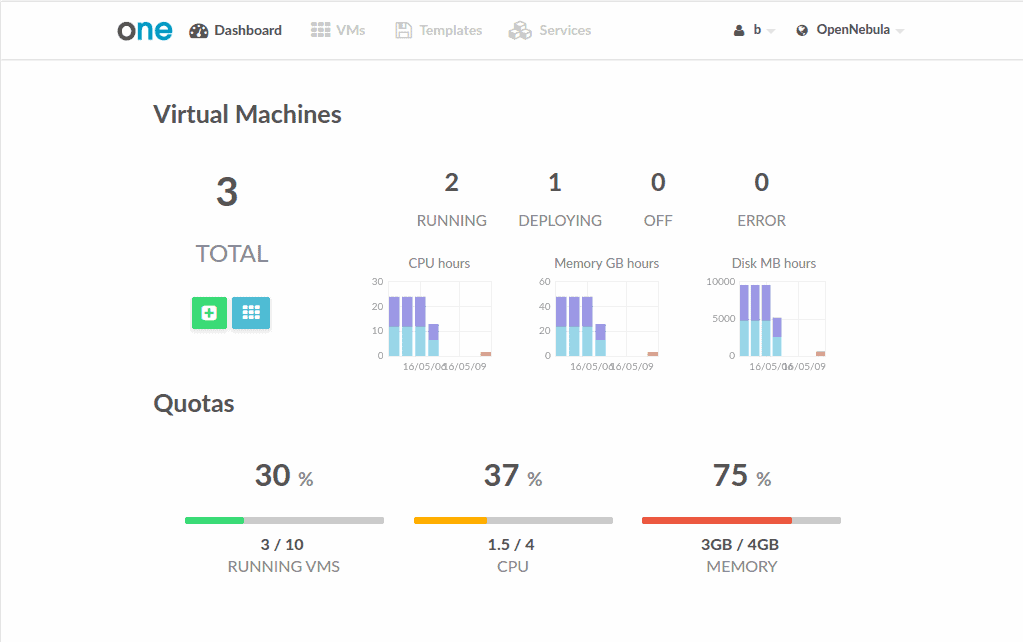
OpenNebula is one of the best cloud management platforms. That provides support to execute and handle enterprise cloud. The features of OpenNebula are mentioned below:
Ready Software: Ensures the longevity of the cloud by integrating the patching and upgrading the technical process. Tested by deploying into scalable productions, and you can achieve support from the developers.
Integration with third-party tools: OpenNebula can be integrated with database providers and other monitoring, networking, and access management services. It can be effortlessly joined into the existing IT structure and dataset.
Management of Enterprise tools: Provides data models that offer monitoring and accounting system and enable us to manage scope and administration. Its features include the most advanced data cloud management, on-demand support of VMs, clustering, and service management.
Q-48. What is the platform used in Cloud Computing for large scale computing?
To distribute large scale computing, several platforms are used, which are:
MapReduce: This is a framework developed by Google to work with large data sets. It supports distributed computing and utilizes cloud resources. It can spread data to several computers by clustering. MapReduce platform is capable of dealing with structured and non-structured data sets as well.
Apache Hadoop: As an open-source distributed computing platform, it creates a pool with a similar file system known as Hadoop. This platform is written in Java and can cluster the datasets using the Hash Algorithm.
Q-49. Mention the names of large database providers in Cloud Computing.
There are some large cloud vendors around the world. Some of them are:
Google BigTable: Uses map reducing algorithm to manage the big table. The database is split into rows and columns.
Amazon SimpleDB: Used for storing and querying the data. By automatic indexing system, it processes the dataset within the cloud.
Cloud-Based SQL: Innovated by Microsoft and stores data using a relational database. Databases are stored in the cloud, which can be accessed from user applications.
Q-50. What is the role of a System integrator in Cloud Computing?
The cloud architectures are built by following the sophisticated processes. System integrators manage these processes by technically handling the wide range of products delivered by several vendors. They help organizations to plan cloud architecture to build a private and hybrid cloud. The System Integrators also design strategies.
Finally, Insights
Here in this article, we have tried our best to find out the top cloud computing interview questions that are asked in most of the interview boards. Cloud computing has attracted the consideration of all enterprises. Most of the successful businesses or organizations have already transformed their operation and implemented cloud computing. As a result, the number of jobs is increasing rapidly. If you are a cloud engineer and want to start your journey in this field, then these are the questions you should expect during your interview. In other words, these are the most basic concepts of cloud computing that you should know to prove yourself as a potential candidate while applying for a cloud computing job.
